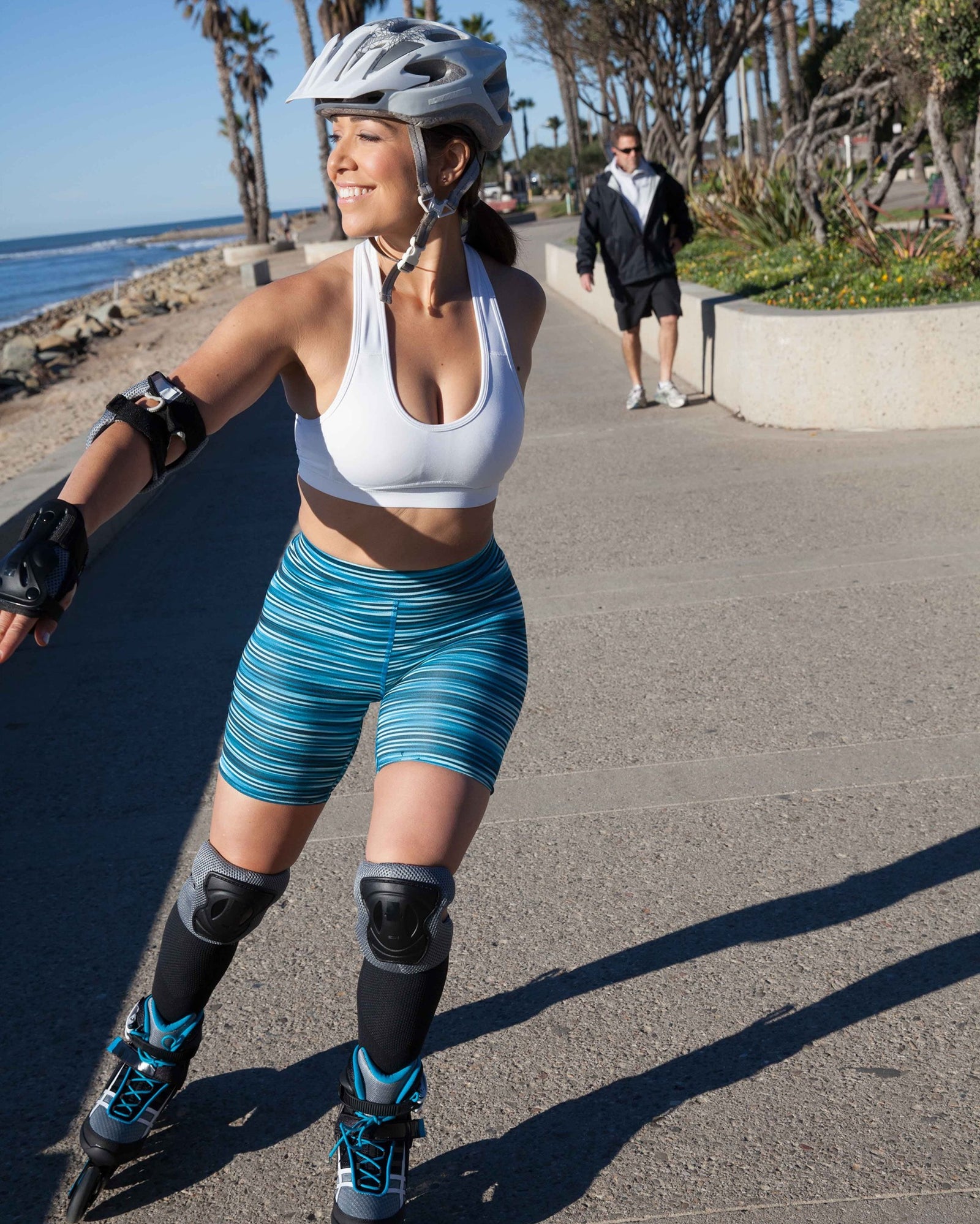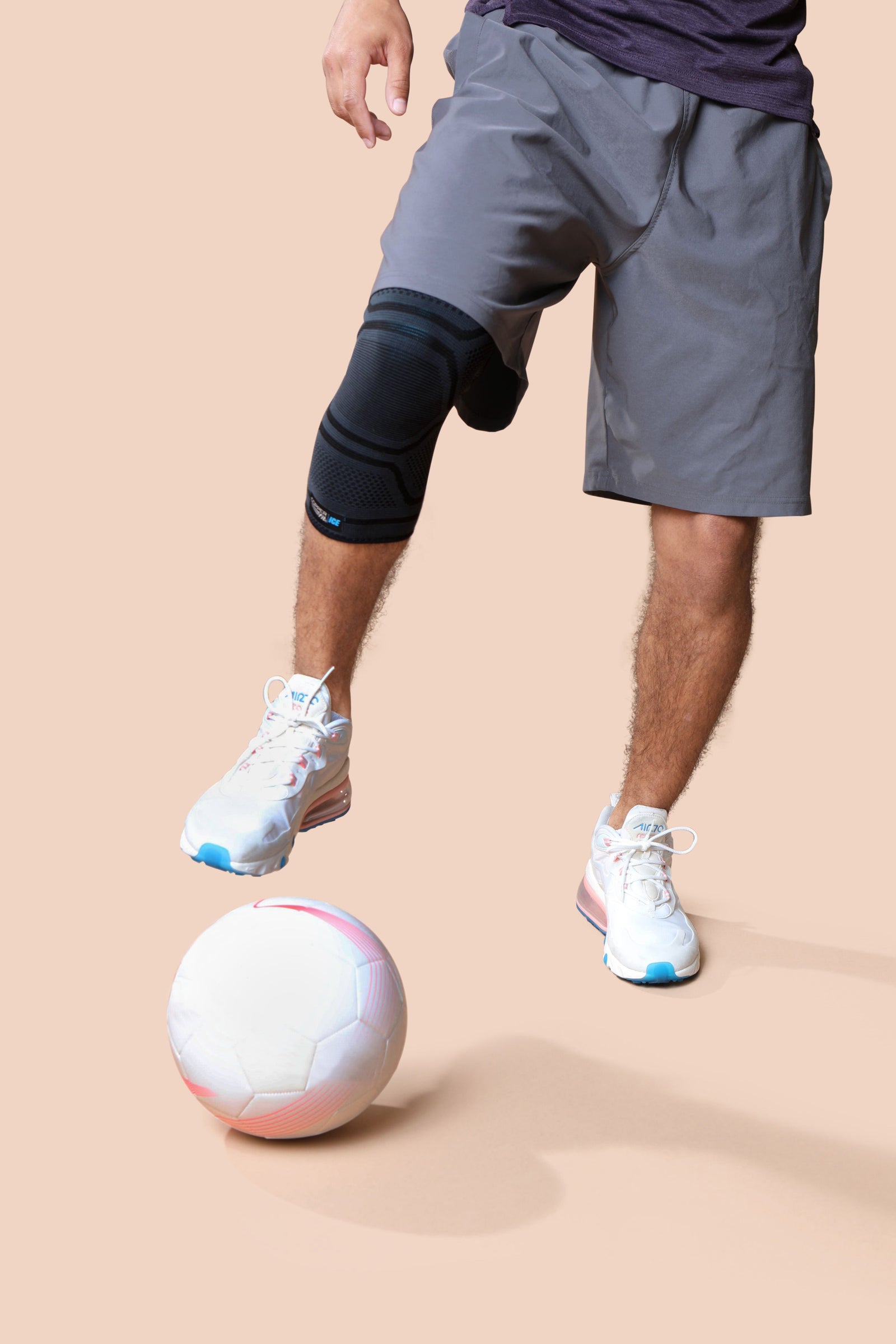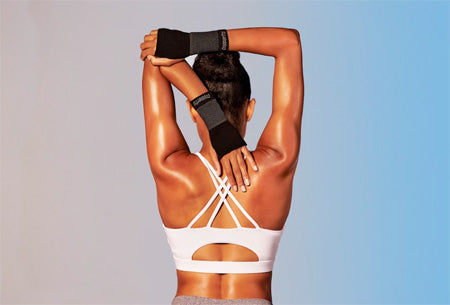Continue Shopping
Your cart is empty
Free shipping on orders over $50
Free socks with any purchase
Free shipping on orders over $50
Free socks with any purchase

G | R | 0 Accounts
Embarking on the path to compete in a triathlon is a commendable feat. A triathlon—a race that combines swimming, cycling, and running—is a test of endurance, strength, and mental fortitude. Proper training is crucial to performing at your best but also ensuring you stay healthy and injury-free.
At Copper Fit, we understand the importance of comfort and recovery in any fitness process, and we're here to support you as you prepare for your triathlon.
A triathlon is a multi-disciplinary event that pushes your body to its limits across three different sports: swimming, cycling, and running.
Each stage presents its unique challenges and demands on your body.
Understanding these demands can help you tailor your training effectively, ensuring you're well-prepared for each stage of the race.
Training for a triathlon is not a one-size-fits-all process. Each athlete has unique strengths, weaknesses, and fitness levels. A structured and personalized training plan is essential to address these individual factors and ensure a gradual progression in your training.
Consistency is key in triathlon training. Regular workouts help build endurance and strength, which are essential for the demanding nature of the triathlon. However, it's equally important to avoid overtraining, which can lead to fatigue or injuries.
A well-structured training plan balances rigorous training days with adequate rest and recovery periods, helping you maintain your training momentum without compromising your health. Your training is specific to you.
Listen to your body, adjust your plan as needed, and keep your focus on your personal goals. With the right plan and mindset, you're well on your way to conquering your triathlon.
Training for a triathlon requires a targeted approach for each of its three stages: swimming, cycling, and running.
Let's explore how to prepare for each.
Swimming requires excellent cardiovascular fitness, upper body strength, and efficient breath control. It's crucial to master proper swimming techniques to conserve energy for the subsequent stages.
Regular swimming drills focusing on stroke efficiency, breathing, and endurance can help prepare you for this stage. It's about both speed and maintaining a pace you can sustain.
Cycling demands lower body strength and endurance. A proper cycling posture can help maintain comfort and efficiency, ensuring you don't exhaust yourself before the final run.
Incorporate long rides, hill climbs, and interval training in your routine to build your cycling strength and stamina. It's also important to ensure you have the right equipment, like a well-fitted bike and a comfortable helmet, to support your training.
The last stage, running, tests your stamina, leg strength, and mental resilience. At this point in the race, fatigue sets in, making it essential to have a good running form and a strong mindset. Incorporate different types of running workouts in your training, like long runs for endurance, interval runs for speed, and hill runs for strength.
In the midst of rigorous triathlon training, never underestimate the importance of rest and recovery. Giving your body time to heal and rejuvenate is crucial to avoid overtraining, which can lead to fatigue or injuries.
Incorporate rest days in your training plan and consider activities like yoga or stretching to maintain flexibility and promote recovery. Pay attention to any signs of discomfort or pain during your training—these could be early indicators of potential injuries.
Proper nutrition and hydration play a vital role in your triathlon training. They fuel your workouts but also support your recovery and overall health.
A balanced diet rich in lean proteins, complex carbohydrates, and healthy fats can provide the necessary nutrients for energy and muscle repair. Hydration is equally important, especially during long training sessions. Dehydration can affect your performance and recovery, so it's crucial to drink plenty of fluids before, during, and after your workouts.
Everyone's nutritional needs are different. It may be beneficial to consult with a sports nutritionist to create a personalized diet plan that suits your training regimen and dietary preferences.
Triathlon is as much a mental challenge as it is a physical one. Mental strength can keep you going when your body starts to tire, helping you push through the discomfort and maintain your pace.
Mindset training, such as visualization techniques or mindfulness exercises, can help improve your mental resilience. Regular practice can help you stay focused, manage stress, and maintain a positive attitude throughout your training and on race day.
Keep in mind that a triathlon is a test of endurance, and mental fortitude is a significant part of that endurance. By training your mind alongside your body, you're equipping yourself with a powerful tool for success. Don’t discount the power of a focused and controlled mind!
Choosing the right gear can significantly impact your comfort and performance during your triathlon training and on race day. From your swimsuit and goggles to your bike and running shoes, each piece of equipment should fit well and suit your specific needs.
When it comes to gear for recovery and comfort, Copper Fit offers a range of products designed with the goal of maintaining comfort during your training. Our products can support healthy circulation, potentially making your training more comfortable.
Training for a triathlon is a process that tests your physical strength, endurance, and mental resilience. By understanding the demands of a triathlon, following a structured training plan, focusing on recovery, and equipping yourself with the right gear, you're setting a strong foundation for success.
Don’t forget that every athlete's progress is specific to them. Listen to your body, adjust your training as needed, and keep your focus on your personal goals. With the right preparation and mindset, you're well on your way to conquering your triathlon.
At Copper Fit, we're here to support your comfort and recovery throughout your training. Our mission is to help you stay active and feel your best every day. Happy training!
Sources:
Prioritizing Carbohydrates: A Guide for Endurance Runners | USU
How To Stay on Track and Avoid Injury While Cycling
Prioritizing Carbohydrates: A Guide for Endurance Runners | USU




